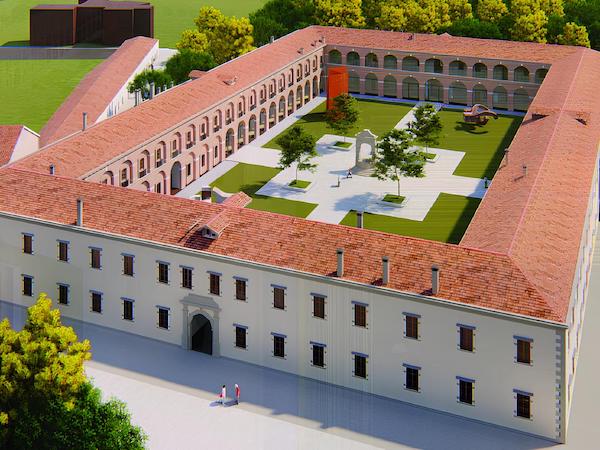A new study published in Environmental Science and Policy shows that, without adequate and targeted policies, many households will rely on air conditioning to adapt to climate change, thus generating even more greenhouse gas emissions.
The study, led by Enrica De Cian, professor at Ca’ Foscari University of Venice and researcher at the Euro-Mediterranean Center on Climate Change, analyses the dynamics that lead households to resort to air conditioning systems and thermal insulation in 8 countries, 5 of which European, from 1990 till 2040. The study is based on a survey implemented by the OECD on a sample of European families, combined with climatological data.
Besides the relevant regional differences, and the surge of AC in the cities, the study also shows that an essential factor for choosing to have air conditioning at home is the wealth of the whole household. The presence of people who are especially sensitive to high temperatures, such as children and the elderly, is also crucial. Other important factors are the type, the property status and the state of the home as well as the environmental awareness of the head of the family, and its habit of putting into practice energy saving behaviours.
Prof. De Cian also points out that “Europeans globally have a low inclination for installing air conditioning systems in their home (20% of households on average) if compared to countries like Japan (90%) and Australia (72%) which should reach 100% in 2040. Climate and cultural differences, even within the same country, lead to very different results.”
Across the 5 European Countries analyzed, the number of households which will buy a new AC system will increase by an average of 4.3% between 2011 and 2040. The study shows that this increase is more due to urbanization (3/4) than climate change (1/4).
France is typically a country with little inclination for AC, both for cultural and climate reasons. Thermal insulation is preferred and 50% of all houses are already equipped with it . In 1990, the percentage of households with AC was almost nil, but since 2000 we have been witnessing a slow but steady increase, reaching 13% in 2011 and 17.3% by 2040.
Similar to France, in the Netherlands, almost 60% of households is equipped with some sort of thermal insulation. As the number of hot days has increased by 60% between 1990 and 2011, the number of AC systems in households has also surged: from 0.5% in 1990 to 14% in 2014 and the study projects an alarming 19% by 2040.
On the contrary, Spain, the only Mediterranean country in the study, shows very different characteristic. Partially due to the numerous heat waves affecting the country, the 5% of households that had AC in 1990 will become a startling 50% by 2040, while thermal insulation reaches only 1/3 of houses, a number that apparently.
Being a north-European country, Sweden is traditionally less exposed to recurring heat waves, but the number of households with AC has nevertheless increased by 30 times since 2005, and the study says it will reach peaks of one family out of five in 2040. This is also one of the countries that are more favourably inclined towards thermal insulation - projections estimate that almost one in two families will choose it by 2040.
Due to its peculiar cultural, territorial and climate characteristics Switzerland, has a less significant number of AC systems when compared to the other European countries analyzed , but these percentages are doomed to increase by 50% in the next 20 years, reaching 15% of households by 2020.
The EU is currently lagging behind schedule when it come to heavy cuts on Greenhouse Gas Emissions by 2020 and 2030. While it is true that new buildings averagely consume 40% less energy than old ones, only 1% of European buildings fall into the first category.
“As highlighted by a number of studies, improving thermal insulation of buildings through the adoption of building codes, is among the most effective policy instruments for reducing residential energy consumption and the need for cooling systems” explains Filippo Pavanello co-author of the study and researcher at Ca’ Foscari. “New policies should also seek to increase environmental awareness in the public, as we show that this is an important factor when deciding to install AC in your home, as well as when deciding how much to use it.”
This new study, funded by the European Research Council, is the collective effort of a team of researchers (http://www.energy-a.eu/team/) based at Ca’ Foscari University and the Euro-Mediterranean Center on Climate Change, both in Venice. This same team studies the broader theme of adaptation to climate change through the use of energy, and seeks to advise on the possibilities to break this vicious cycle, where more emissions mean more climate change, which in turn leads to an increase in energy consumption for adaptation and thus even more emissions.











